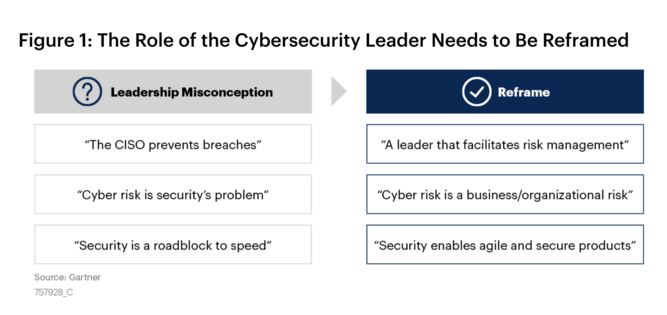Gartner: Why the cybersecurity leader’s role must evolve

The role of cybersecurity leader needs to evolve, as accountability for cyber risk shifts outside IT and an increasingly distributed ecosystem leads to a loss of direct decision-making control.
According to Gartner, security and risk management leaders now invest significantly more effort into evaluating and influencing the cyber health of external parties, while employees are making more decisions with cyber risk implications, and executive committees are being established outside the scope of the CISO.
And it is these factors, say Gartner analysts, that will ultimately lead to an environment where the cybersecurity leader will have less direct control over many of the decisions that would fall under their scope today.
“Cybersecurity leaders are burnt out, overworked and in ‘always-on; mode,” says Sam Olyaei, research director at Gartner. “This is a direct reflection of how elastic the role has become over the past decade due to the growing misalignment of expectations from stakeholders within their organisations.”
Accountability for cyber risks will expand beyond IT
According to a recent Gartner survey, 88% of boards regard cybersecurity as a business risk rather than solely a technical IT problem, and 13% have responded by instituting cybersecurity-specific board committees overseen by a dedicated director.
Gartner predicts that at least 50% of C-level executives will have performance requirements related to cybersecurity risk built into their employment contracts by 2026.
This impacts the timeliness and quality of information risk decisions, which are increasingly being made by stakeholders outside of IT or security’s line of sight. In response, Gartner expects to see an inevitable shift in formal accountability to business leaders who are responsible to the CEO for delivering strategic objectives, such as revenue and customer satisfaction.
As formal accountability for cyber risk shifts to the business, Gartner analysts said the role of the cybersecurity leader must therefore be reframed in order to succeed.

“The CISO role must evolve from being the ‘de facto’ accountable person for treating cyber risks, to being responsible for ensuring business leaders have the capabilities and knowledge required to make informed, high-quality information risk decisions,” says Olyaei.
Cybersecurity will be included in ESG disclosures
Investor interest, public pressure, employee demands, and government regulations are strengthening the incentives for organizations to track and report cybersecurity goals and metrics within their ESG efforts as a business requirement.
As a result, Gartner predicts that 30% of large organisations will have publicly shared ESG goals focused on cybersecurity by 2026, up from less than 2% in 2021.
“Expectations that organisations should be more transparent about their security risks have increased, resulting in public demand for greater transparency within their ESG reporting,” says Claude Mandy, research director at Gartner. “Cybersecurity is no longer solely a risk to the organisation, but a societal risk.”
Security and risk management leaders will increasingly have to demonstrate an organisational commitment to reducing the social issues that may arise from cybersecurity incidents, such as data breaches of customer personal information; potential safety concerns from use of cyber-physical systems; potential for misuse and abuse within their products; and malicious cyberactivity against critical infrastructure.
- Five Minutes With: Sarah Robb O'Hagan, CEO at ExosLeadership & Strategy
- Asset Panda CEO Rex Kurzius on Innovating and Taking RisksLeadership & Strategy
- Liz Elting – Driving Equality & Building Billion-$ BusinessLeadership & Strategy
- Microsoft and Tech Mahindra share cybersecurity insightsTechnology & AI






